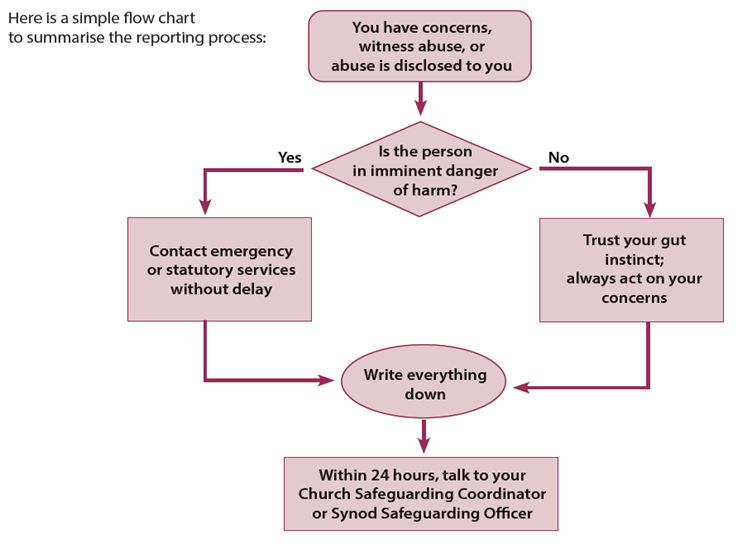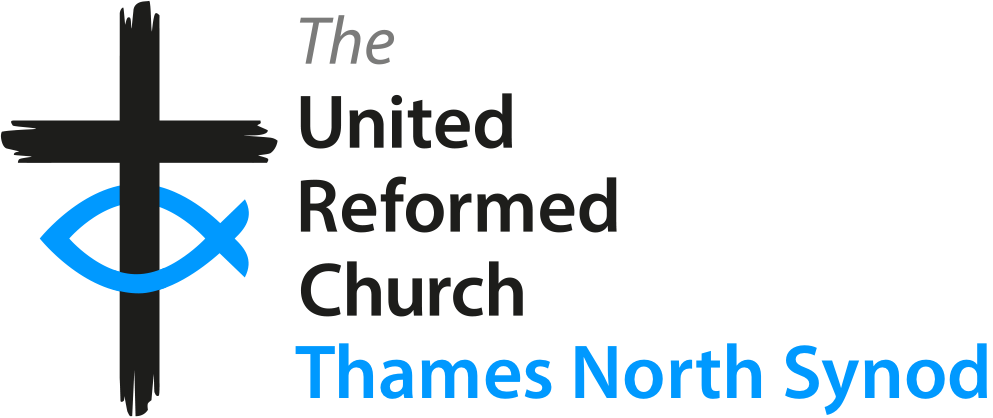Safeguarding
-
How we protect and support children, young people, and vulnerable adults across our churches.
-
Reporting a Safeguarding Concern
If you’re worried about someone’s safety, find out how to report your concerns clearly and confidentially.
-
Safeguarding Training & Events
Stay up to date with training opportunities to help you and your church create a safer environment.
-
Learn to recognise the signs of specific safeguarding issues, including different types of abuse, exploitation, and vulnerability.
-
Understanding the signs of domestic abuse and how to respond.
-
Information on how to recognise and report grooming and exploitation.
-
Guidance on identifying and dealing with issues of financial abuse.
-
Advice to follow in the event of honour-based abuse or forced marriage.
-
Managing Risks & Safeguarding Agreements
The formal process for managing individuals who may pose a risk to others within the church community.
-
Coping with the experience of losing someone important to us.
-
Financial Hardship & Homelessness
Understanding vulnerability and finding sources of help.
-
IICSA (Independent Inquiry into Child Sexual Abuse)
The findings from the Independent Inquiry into Child Sexual Abuse.
-
-
Safeguarding Policies & Guidance
Essential policies and best practice guidance for keeping people safe in our churches.
-
The official Safeguarding Policy for Children and Adults for the Thames North Synod.
-
Guidance on the safeguarding responsibilities and duties of Elders as charity trustees.
-
Safer Recruitment and Volunteers
The principles and procedures for ensuring only suitable people work with children and adults at risk.
-
Best practices for safe online communication and ministry.
-
Activities in Private Dwellings
Guidance on assessing and managing the unique risks of holding church activities in private homes.
-
-
Safeguarding Resources & Forms
Download essential safeguarding forms, templates and printable materials for use in your church.
-
Get in touch with our Safeguarding Officers for confidential advice, support, or reporting.
-
Reporting a Safeguarding Concern
If you’re worried about someone’s safety, find out how to report your concerns clearly and confidentially.
Immediate Danger
If you believe someone is in immediate danger of harm, you must call the police on 999 without delay.
If your concern is urgent but does not involve immediate danger, you should contact your Local Authority's Children or Adult Social Care services directly. For all other concerns, please follow the steps below.
The Reporting Process: A Step-by-Step Guide
This flowchart provides a simple overview of the process to follow when you have a safeguarding concern.

Step 1: Respond to the Disclosure
If a child, young person, or adult discloses that they are being or have been abused, it is vital that you:
- Stay calm and listen to them carefully.
- Reassure them that they have done the right thing by telling you.
- Do not promise to keep it a secret. Explain that you must pass the information on to help keep them and others safe.
- Do not investigate yourself or ask leading questions.
Step 2: Inform the Right Person
You must inform your church's designated Safeguarding Coordinator within 24 hours. If the concern implicates them, you should contact the Synod Safeguarding Officer instead.
Contact details for the Synod Safeguarding Officer are on our Safeguarding Contacts page.
Step 3: Record the Details
You must make a written record of the allegation or concern as soon as possible, while the details are fresh in your mind. Use the official Safeguarding Concern Form to ensure all necessary information is captured.
Be factual and record what the person said, using their own words where possible. Note the time, date, place, and people present. Sign and date your record.
The Safeguarding Concern Form (F1) is available for download on our Safeguarding Resources & Forms page.
What Happens Next?
Once you have passed the information to the Safeguarding Coordinator or Synod Officer, they will take responsibility for the next steps. This will involve assessing the information and, where necessary, making a formal referral to statutory authorities like the police or social services. They will also inform the URC's national safeguarding team. You will be kept informed of the process as appropriate, but the primary responsibility for managing the case will lie with them.
